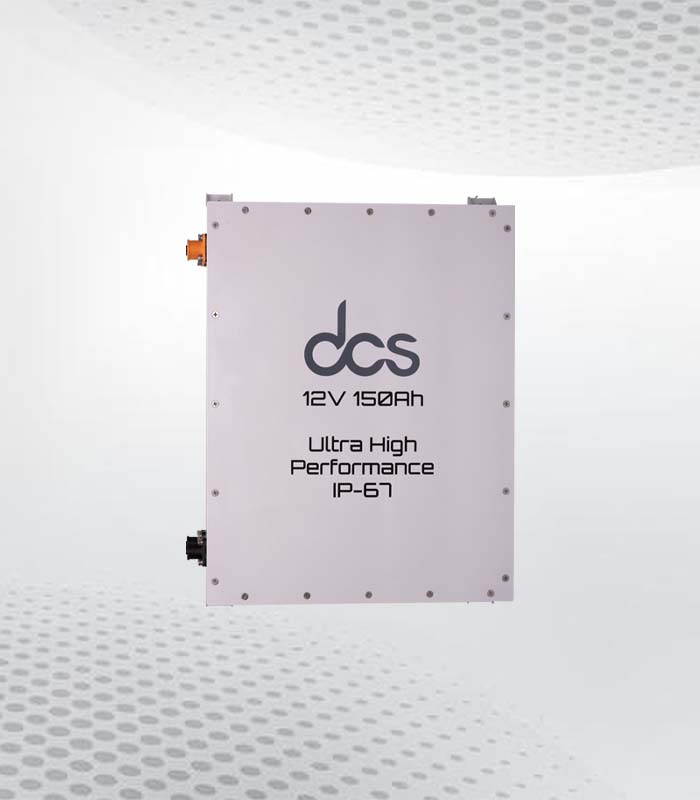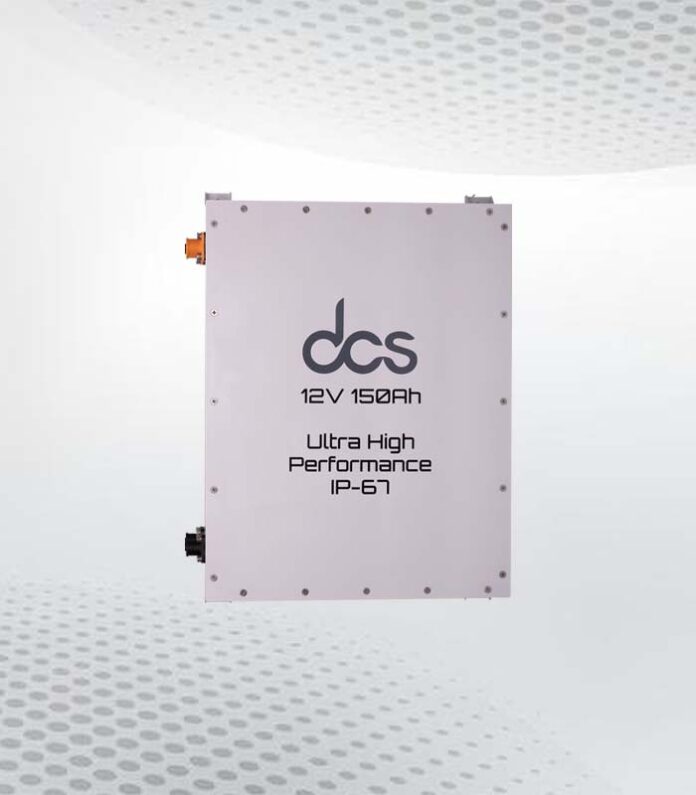In the 20th century, the world was vastly different; where technology was in its infancy, and the concept of a portable, efficient, and powerful energy source was a distant dream. However, the dawn of the 21st century marked the beginning of a revolution that would transform the world forever. The invention of lithium ion battery, a technological marvel hailed as a game-changer, has enabled the widespread adoption of portable electronics, electric vehicles, and renewable energy systems, forever changing how you live, work, and travel.
The Rise Of Lithium-Ion Batteries: A Brief History
The lithium-ion battery, a game-changing technology that would forever reshape the way they think about power, was about to emerge. It was a time of great innovation and experimentation, with researchers and scientists working tirelessly to perfect the art of harnessing the energy-storing potential of lithium.
The early years of this century saw the first commercial applications of lithium-ion batteries, and their introduction into the market was marked by excitement and scepticism. Many wondered about the technology’s potential to scale and meet the demands of a rapidly changing world.
However, the pioneers of this field were undeterred, driven by a vision of a future where energy was limitless, portable, and accessible to all. And so, with each passing year, the lithium-ion battery continued to evolve, its design and capabilities refined through countless iterations until it became the unstoppable force that has transformed the world as we know it today.
How Lithium-Ion Batteries Changed The Game?
As the world embarked on a journey to harness the power of clean energy, lithium-ion batteries were poised to revolutionize how you live and interact with our surroundings. The dawn of the 21st century saw the first commercial applications of lithium-ion batteries, and it wasn’t long before their impact was felt across industries.
Consumer electronics landscape
The introduction of lithium-ion batteries profoundly affected the consumer electronics landscape. Gone were the days of bulky, heavy batteries that limited device portability. With lithium-ion batteries, consumers could enjoy sleek, lightweight devices that could be powered on the go.
Widespread adoption of smartphones
This marked a significant shift in how people lived and worked as the boundaries between home and work became increasingly blurred. The rise of lithium-ion batteries also enabled the widespread adoption of smartphones, laptops, and other portable devices, which has profoundly impacted modern society.
Reliable source of power
Lithium-ion batteries played a crucial role in the development of electric vehicles in the automotive sector. By storing energy and providing a reliable source of power, they enabled the creation of electric cars that could travel long distances without the need for fossil fuels.
Healthier future
This shift towards sustainable transportation has significantly impacted the environment, reducing greenhouse gas emissions and contributing to a cleaner, healthier future.
Rapidly changing environment
As the world continues to evolve and adapt to the demands of a rapidly changing environment, the role of lithium-ion batteries will only continue to grow. From renewable energy systems to medical devices, the applications of lithium-ion batteries are vast and varied. As you look to the future, it is clear that lithium-ion batteries will play a pivotal role in shaping our world, and their impact will only continue to grow as technology advances.
 Impact Of Lithium Battery Pack On Electric Vehicles
Impact Of Lithium Battery Pack On Electric Vehicles
The game-changing revolution of lithium battery pack has profoundly impacted the world of electric vehicles. Gone are the days of limited range and cumbersome charging times, as lithium-ion batteries have enabled the widespread adoption of electric cars, transforming how we travel and think about transportation.
The impact of lithium-ion batteries on electric vehicles is twofold. First, they have created high-performance cars that can accelerate quickly, handle smoothly, and provide a quiet and comfortable ride. Second, the increased efficiency and longer lifespan of lithium-ion batteries have reduced the overall cost of ownership, making electric vehicles a more viable and attractive option for consumers.
As governments worldwide implement stricter emissions regulations and consumers increasingly demand environmentally friendly options, the demand for electric vehicles is expected to continue its upward trajectory.
Role Of Lithium-Ion Batteries In Renewable Energy
As the world continues to shift towards a more sustainable future, the importance of lithium-ion batteries in renewable energy cannot be overstated.
- These revolutionary powerhouses are at the forefront of the transition to clean energy, enabling the widespread adoption of solar and wind power.
- The impact of lithium-ion batteries on renewable energy is profound.
- They allow for the development of microgrids, which can operate independently of the primary grid, providing power to remote communities and off-grid locations.
- They also enable the creation of energy storage systems, which can absorb excess energy during the day and release it during peak demand, reducing the strain on the grid and decreasing the need for fossil fuels.
- Furthermore, lithium-ion batteries are crucial in electrifying transportation and powering electric vehicles and e-bikes that can run on renewable energy sources.
This reduces greenhouse gas emissions from transportation and increases the energy system’s overall efficiency.
Faster Charging And Discharging
The integration of nanotechnology has enabled the creation of more efficient electrodes, allowing for faster charging and discharging. Artificial intelligence has also optimized baoptimizationmance, enabling real-time monitoring and predicting energy storage needs.
Exploring new materials and manufacturing techniques is also shaping the future of lithium-ion batteries. Researchers are exploring using sustainable materials, such as graphene and lithium-rich cobalt oxides, to reduce the environmental impact of battery production. 3D printing technology has also created complex battery designs, allowing for more efficient energy storage and improved performance.
As the world continues to transition towards a more sustainable future, the advancements and innovations in lithium-ion batteries are set to play a crucial role in shaping the future of energy storage. With their ability to store clean energy, power electric vehicles, and enable the widespread adoption of renewable energy sources, lithium-ion batteries are poised to revolutionize the revolution in small ways.
Impact Of Lithium-Ion Batteries On Society
As the world continues to evolve at a breakneck pace, it’s no secret that technology has become an integral part of our daily lives.
Profound impact
From the moment they wake up to the moment they drift off to sleep, they are constantly surrounded by devices and gadgets that rely on a single crucial component: the lithium-ion battery. The impact of lithium-ion batteries on society has been profound, and it’s hard to imagine a world without them.
For electric vehicles
From the humble smartphone to the electric vehicles on our roads, lithium-ion batteries have enabled us to live, work, and play in previously unimaginable ways.
Stay connected with loved ones.
They’ve given us the freedom to work remotely, stay connected with loved ones, and access vast information and entertainment at the touch of a button. But their impact extends far beyond the realm of personal convenience.
Sustainable energy solutions
Lithium-ion batteries have also played a critical role in the development of sustainable energy solutions, such as wind and solar power. These solutions are helping to reduce our reliance on fossil fuels and mitigate the effects of climate change.
Creating a brighter future
In addition, the widespread adoption of lithium-ion batteries has also significantly impacted the economy, creating new industries, jobs, and opportunities for growth. As the demand for these batteries continues to rise, they will see even more innovation and investment in the sector, driving progress and creating a brighter future for future generations.
Environmental Concerns Surrounding Lithium-Ion Batteries
As the world has become increasingly dependent on the power and convenience of lithium-ion batteries, concerns about their environmental impact have begun to rise to the forefront. The production of these batteries requires significant amounts of energy, often generated by fossil fuels, contributing to greenhouse gas emissions and climate change.
Furthermore, disposing of lithium-ion batteries at the end of their life cycle poses a significant environmental threat. When not properly disposed of, these batteries’ toxic chemicals and heavy metals can contaminate soil and water, causing long-term damage to ecosystems and human health.
Despite these concerns, the potential benefits of lithium-ion batteries in mitigating climate change cannot be overstated. As the world transitions towards renewable energy sources, the widespread adoption of lithium-ion batteries is crucial for efficient and reliable energy storage. However, the industry must proactively address the environmental concerns surrounding these batteries, investing in sustainable production methods, recycling programs, and responsible disposal practices.
Ethical Considerations Of lithium ion battery pack
As they marvel at the incredible advancements made possible by lithium ion battery pack, it’s essential to acknowledge the ethical considerations that come with their widespread adoption. The production of lithium-ion batteries is often linked to environmental concerns, social injustices, and human rights issues.
Mining these materials is often characterized by poor working conditions and child labour. Moreover, the disposal of used lithium-ion batteries is a growing concern, as e-waste is becoming increasingly problematic. The toxic materials and chemicals in these batteries can contaminate soil and water, posing a significant environmental threat.
Furthermore, the demand for lithium-ion batteries has led to the exploitation of workers in countries like the Democratic Republic of Congo, where cobalt is mined in large quantities. The use of child labour and the tragic accidents that have occurred in these mines have sparked widespread outrage and calls for accountability.
Potential For Lithium-Ion Batteries To Solve Global Energy Problems
As the world grapples with the pressing issue of climate change, the quest for sustainable and renewable energy sources has become a top priority. And in this quest, lithium-ion batteries have emerged as a game-changer.
With their remarkable ability to store and release energy efficiently, these batteries have the potential to revolutionize, transmit, and consume energy. No longer limited to powering portable devices, lithium-ion batteries are now being harnessed to store excess energy generated by solar panels and wind turbines, enabling households and businesses to rely on clean energy even when the sun isn’t shining, or the wind isn’t blowing.
Conclusion
In conclusion, lithium battery pack has revolutionized devices, vehicles, and renewable energy systems. Their high energy density, lightweight design, and long cycle life make them indispensable in various applications, from smartphones and laptops to electric cars and grid-scale energy storage. Despite their numerous advantages, ongoing research and development efforts continue to address challenges such as cost reduction, safety improvements, and environmental sustainability.
FAQs
What Is A Lithium-Ion Battery, And How Does It Work?
A lithium-ion battery is a rechargeable type of battery that uses lithium ions as the primary component of its electrolyte. Lithium ions move from the negative electrode (anode) through the electrolyte to the positive electrode (cathode), generating electrical energy during discharge.
What Are The Advantages Of Lithium-Ion Batteries Over Other Types Of Batteries?
Lithium-ion batteries offer several advantages, including high energy density, which means they can store a significant amount of energy in a relatively small and lightweight package. They also have a low self-discharge rate, meaning they retain their charge for extended periods when unused.
How Long Do Lithium Battery Pack Typically Last, And How Can I Extend Their Lifespan?
The lifespan of a lithium battery pack is influenced by factors such as usage patterns, charging habits, temperature conditions, and overall care. On average, lithium-ion batteries can last several years, with degradation occurring gradually over time.
| Other Good Articles to Read |
| skank blogs |
| unreal blogs |
| tba blogs |
| all city forums |
| dany blogs |
| refuge blogs |
| the music blogs |
| key forums |
| the big blog theory |
| joe blogs |
| blogs 4 me |
| Blogs Emon |
| Related Business Listings |
| Contact Directory |
| Local Business Profiles |
